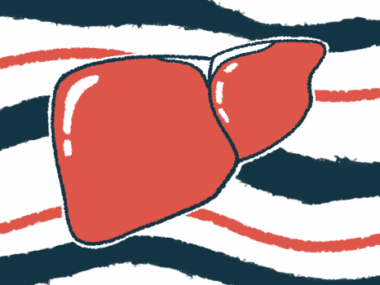New trial testing probiotic for reducing liver inflammation in PSC
Liscure launches Phase 2 study to assess if LB-P8 can improve gut health
Written by |

Liscure Biosciences has launched a Phase 2 clinical trial to test whether its experimental probiotic LB-P8 can improve gut health and reduce liver inflammation and scarring in adults with primary sclerosing cholangitis (PSC).
According to a company press release, patient dosing has begun. The study will assess the safety and effectiveness of LB-P8 in people with PSC, ages 18 to 75, in the U.S. and Europe.
“PSC represents an area of extremely high unmet medical need, as there are currently no approved therapeutic options,” said Hwasup Chin, CEO of Liscure. “This milestone marks a meaningful step forward for both patients and healthcare professionals.”
Cleared by the U.S. Food and Drug Administration (FDA) last year, the trial (NCT06699121) plans to enroll approximately 87 adults with PSC, with or without inflammatory bowel disease (IBD), at 28 study centers, including at least seven in the U.S. Sites in Washington, Maryland, Tennessee, and Iowa are now enrolling. No locations have been announced yet for Europe.
IBD is an umbrella term for diseases marked by gastrointestinal tract inflammation that often occur alongside PSC. LB-P8 has shown beneficial effects in IBD, “giving it a differentiated competitive edge over other drug candidates currently in development,” the release stated.
In a separate press release, the company also announced that it has advanced discussions with potential partners to license LB-P8.
PSC is caused by an abnormal immune-mediated attack on the bile ducts, the tubes that shuttle the digestive fluid bile from the liver to the intestines. Such attacks lead to chronic bile duct inflammation and scarring (fibrosis), resulting in cholestasis or impaired bile flow, as well as bile accumulation in the liver and liver damage.
LB-PB contains live bacteria found in Korean dish kimchi
LB-P8 contains live bacteria of a single strain called Leuconostoc citreum, a probiotic commonly found in kimchi, a traditional Korean dish made from salted and fermented vegetables. Probiotics — present in foods like yogurt and other fermented products — are live microorganisms that are thought to support gut health.
The gut-liver axis, or the connection between the gut and the liver, has been implicated in PSC. As such, LP-B8 may improve gut health while reducing bile buildup and liver inflammation and fibrosis.
The therapy received fast track designation and orphan drug status in the U.S. as a treatment for PSC. A European Medicines Agency committee also issued a positive opinion on LB-P8’s orphan drug status, paving the way for a formal designation in the European Union.
An orphan drug designation aims to expedite the development of therapies for people with rare diseases. In both the U.S. and the EU, such status offers various incentives to developers, including potentially faster regulatory review and market exclusivity for a specific period if the drug is approved. Fast track status, meanwhile, is a process designed to advance development of drugs to treat serious conditions and fill an unmet medical need.
In PSC mice, probiotic reduced liver inflammation, scarring
In preclinical studies, four weeks of daily LB-P8 treatment slowed disease progression in two mouse models of PSC, as indicated by reduced liver inflammation and fibrosis.
Data from a previous Phase 1 clinical trial (NCT05053165) involving 31 healthy adult volunteers showed that LB-P8 was safe and well tolerated.
The new Phase 2 study will test LB-P8 in adults with PSC. Participants may continue stable treatment with other agents during the trial, but must stop all other probiotics for at least two weeks before starting LB-P8.
In its first part, an estimated 12 participants will be randomly assigned to receive either a high or a low dose of LB-P8, once daily, to determine whether both doses are safe and well tolerated.
The trial’s second part will investigate LB-P8’s safety and efficacy in as many as 75 participants, who will be randomly assigned to receive either LB-P8’s low or high dose or a placebo, once daily.
Among the study’s primary goals is evaluating LB-P8’s safety and tolerability over four weeks in part one and 24 weeks, or about six months, in part two. Another primary goal is to assess changes in blood levels of alkaline phosphatase, a marker of liver damage.
Secondary goals, all related to the study’s second part, include changes in liver damage markers, liver fibrosis, and bile duct health, as well as the percentage of participants experiencing disease progression after 24 weeks.



